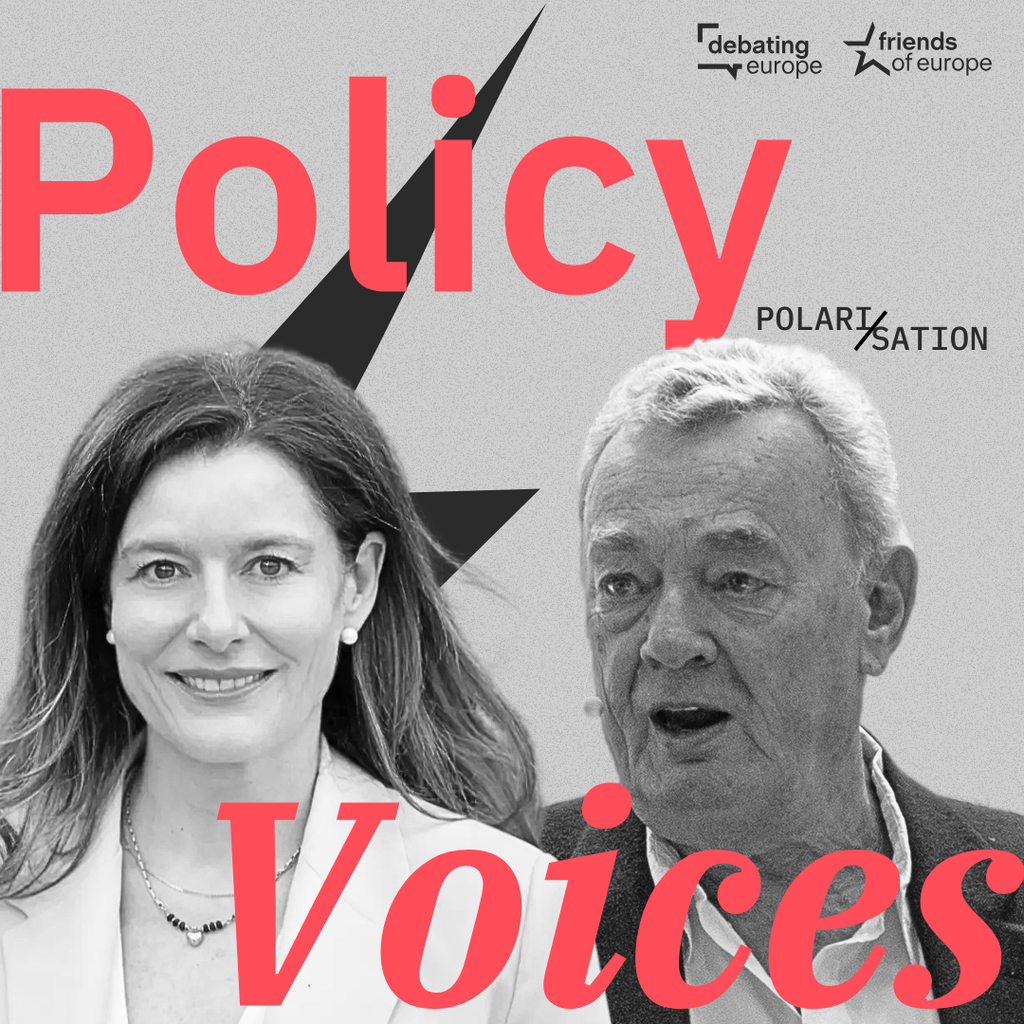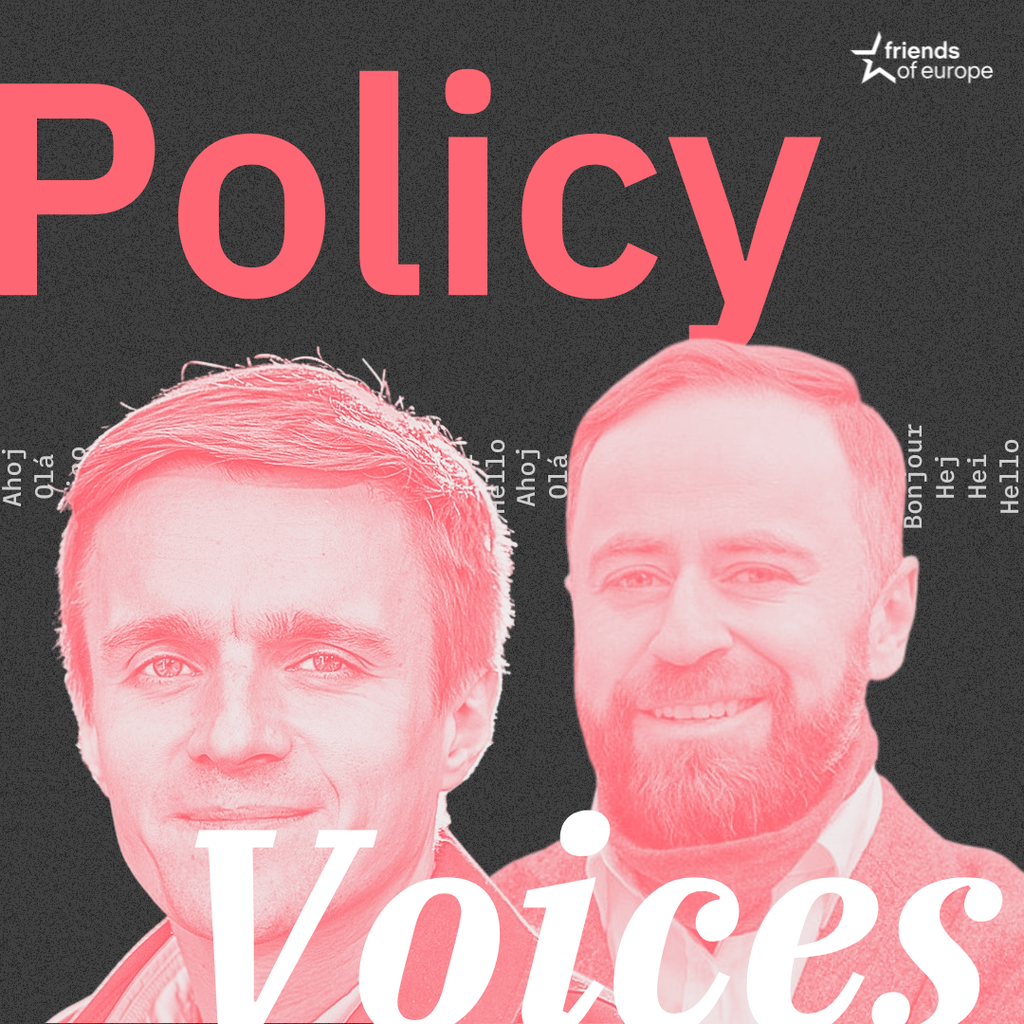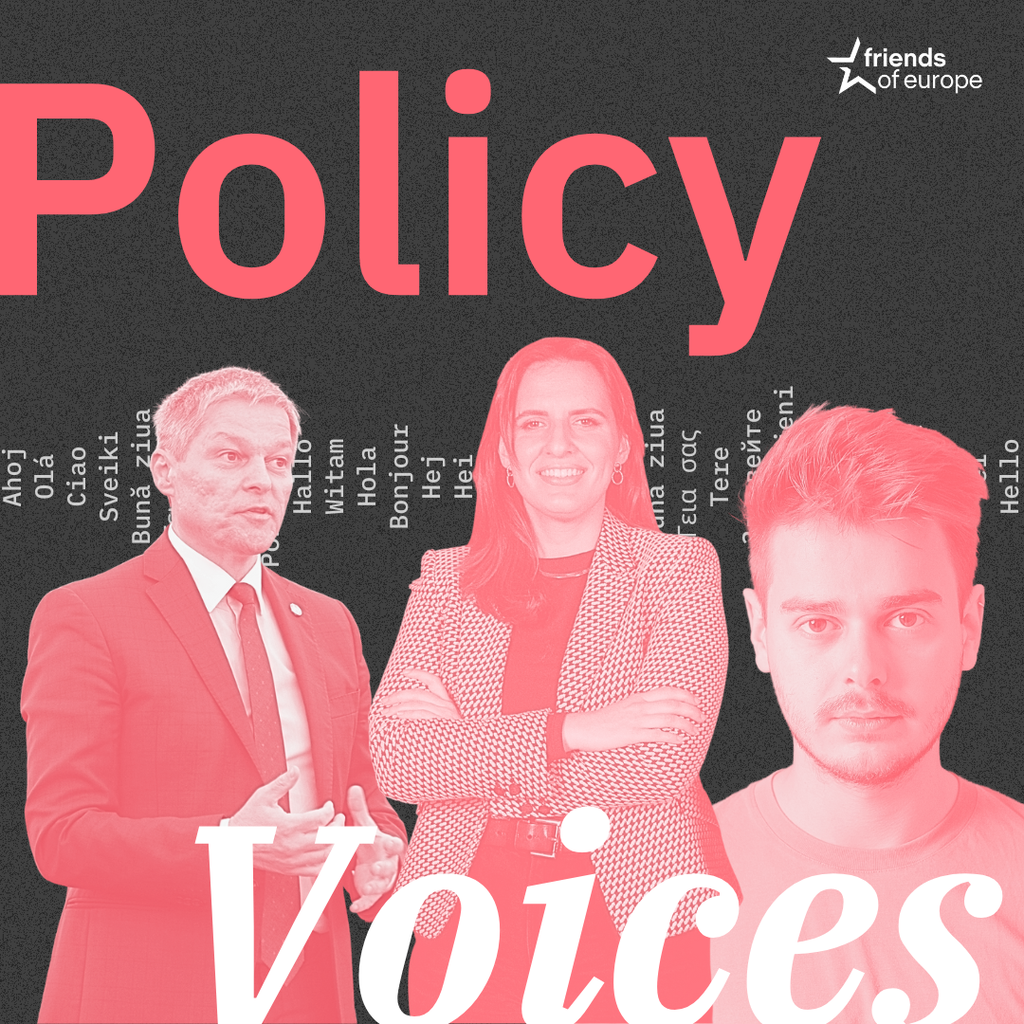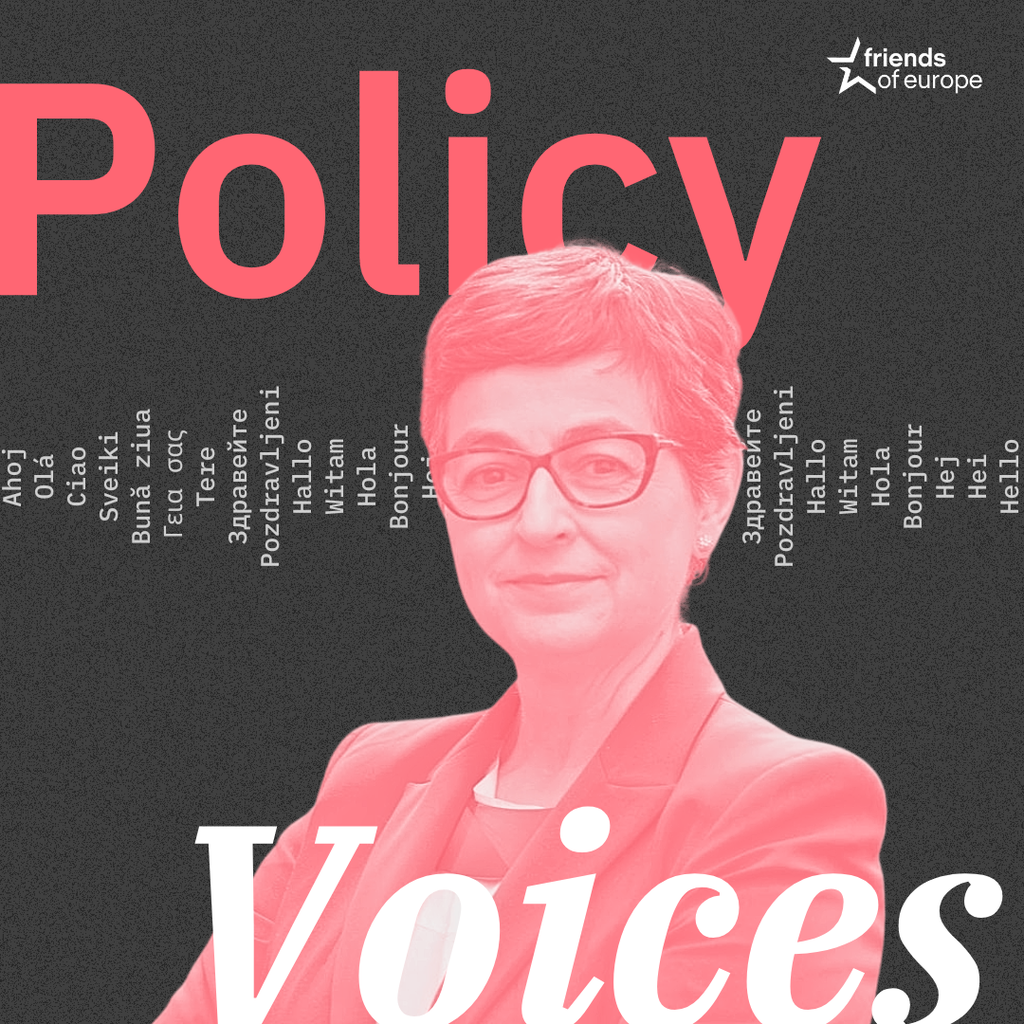Polarisation, disinformation, trust: do young French people think like…
Past event In person

- Area of Expertise
- Democracy
Democracy

Former member of the European Parliament
As it continues to evolve as a federal polity, the European Union faces two foundational problems. One challenge is how to define its boundaries and select its membership. The other, which concerns us here, is how to choose its leaders in a democratic fashion. In the case of the EU, these challenges are complicated by there being no single, federal government but a hydra-headed executive. Alas, a reading of the treaties no longer gives a literal description of the way the Union is governed. This leads to political confusion and legal uncertainty, causing a predicament that will be much in evidence next year when the time comes again to renew the EU’s leadership. What might unfold in 2024?
First up will be the general election of the European Parliament in May. Contrary to the EU treaty, which posits a uniform electoral procedure, 705 MEPs will be elected by different procedures in 27 national elections. Having been selected as candidates and financed by national political parties, the deputies will not be properly accountable to political parties at the European federal level. Parliament’s efforts at electoral reform to install transnational party lists for a pan-European constituency have faltered badly.
No Commission president has ever been plucked from the ranks of newly elected MEPs
The current European parties are feeble forerunners of what they need to be, but they may, nevertheless, promote their champions as candidates for the Commission presidency, as they have tried to do before. But without transnational lists these Spitzenkandidaten, agile as they may be, will find it virtually impossible to gain traction or legitimacy across the Union. So long as the European dimension of the elections remains largely fictive, Parliament’s efforts to advance the unofficial Spitzenkandidat process will be undermined. The European Council will protect its treaty-based right to nominate the new Commission president. No Commission president has ever been plucked from the ranks of newly elected MEPs.
Even if Ursula von der Leyen decides to seek a second term of office, she is unlikely to tie herself too closely to the election campaign of the European People’s Party (EPP). She was elected by a very narrow margin of nine MEPs in July 2019 and will be determined this time to pick up more votes from the centre left and not from the far right. Von der Leyen was not the EPP’s Spitzenkandidat last time and her relations with its MEPs have not been smooth. The EPP seems somewhat lukewarm in their appreciation of her record. Paradoxically, Chancellor Scholz’s coalition government is ready to give von der Leyen another go should she want it.
As soon as the election results are in, attention will turn to the European Council. There, the nomination of the Commission president needs at least a qualified majority — that is, 20 votes representing 65% of the population. At present, the EPP can only claim eight members of the European Council — as against six Socialists (S&D), six Liberals (Renew Europe) and four from the hard right Conservatives and Reformists (ECR). Three members of the European Council have no partisan affiliation.
There must be a discussion about the qualities needed of a Commission president. Linguistic ability, especially good English, is a prerequisite. So is absence from the taint of scandal, senility or intemperance — not always given factors in the life stories of ex-national leaders. Sound ministerial experience and diplomatic skill are essential. Known commitment to the cause of ‘Europe’ helps. Given the state of the Union, reformists should have an advantage over conservatives. Geostrategic ability should be a premium bonus.
Informal negative conventions also apply in order to streamline the selection. While war rages in Ukraine, the candidate should come from a NATO country (sorry, Austria, Cyprus, Ireland and Malta). It would be dysfunctional for a Commission president not to come from the eurozone (sorry, Bulgaria, Czechia, Denmark, Hungary, Poland, Romania and Sweden). Those who have supplied a recent Commission president need not apply (sorry, Luxembourg and Portugal): and on this score unless von der Leyen is reappointed, the next Commission president will not be German.
If Parliament is deprived of its Spitzenkandidat process, many MEPs will be tempted to reject any candidate put forward by the European Council
Charles Michel, President of the European Council, will orchestrate informal discussions with the European Parliament’s new group leaders. His soundings matter. Whomever the leaders eventually nominate will need an absolute majority of the Parliament (353 votes) to get elected. When it comes to the plenary vote in July, which is by secret ballot, party group discipline will be weak. In a newly elected House with the usual large turnover of members, nationality and regional preferences may trump party.
Even if the EPP forms the largest group in the new Parliament, it will be far from enjoying an overall majority. Having had EPP Commission presidents since 2004 (Barroso, Juncker and von der Leyen) many will argue it is time for a change. And it is worth noting that neither a grand coalition of the EPP and S&D nor a replica of the German coalition government (S&D, Renew Europe and Greens) would reach an absolute majority in the current Parliament.
If Parliament is deprived of its Spitzenkandidat process, many MEPs will be tempted to reject any candidate put forward by the European Council. There could be no more dramatic expression of parliamentary power than to refuse to dispose what the governments propose. In that event, the Treaty of Lisbon lays down a procedure to avoid a constitutional crisis. If their first nominee falls at the hurdle of the European Parliament, the heads of government have one month to find a new candidate, and the process repeats until a Commission president acceptable to both arms of the legislature emerges.
Would that it were so simple. The shapeshifting nature of the European Union gives us not just one locus of executive authority but the luxury of three. The Commission comprises a permanent college of 27 and meets weekly. The European Council comprises 27 ever-changing government leaders and meets monthly, on day trips to Brussels. Ursula von der Leyen and Charles Michel are members of the European Council but have no vote.
The European Council may aspire to run the affairs of the Council of sectoral ministers, but it has to operate through a rotating presidency of the Council passing among the 27 member states on a six-monthly basis. The Council of ministers is not only the second chamber to the European Parliament of the Union’s bicameral legislature, but also retains weighty executive powers in important matters. Fun fact: the president-in-office of the Council from July to December 2024 is Hungary. Don’t expect Viktor Orbán not to interfere in the game of leadership poker on behalf of the ECR.
However, all being well, a president-elect of the new Commission will surface next July. He or she will then begin to construct their college from names proposed by the member states. In theory, Commissioners will be chosen “on the ground of their general competence and European commitment from persons whose independence is beyond doubt” [Article 17(3) of the Treaty on European Union (TEU)]. In practice, Commission appointments are subject to highly political deals inside national coalition governments. Come the autumn, the European Parliament will (or will not) confirm the appointment of the whole Commission — by a simple majority, roll call vote.
There are plenty of ways for every member state to make its voice count at a high level in Brussels
But preceding that vote, MEPs have adopted the informal practice of hearings for every individual Commissioner candidate. The silence of the Lisbon treaty has allowed MEPs to accrue a critical constitutional power. Several Commission hopefuls have been turned down after grilling by the parliamentary committees. Other candidates have had their portfolios adjusted after a poor audition showing. Expect the Hungarian and Polish candidates to face a particularly tough hearing.
In another regrettable departure from the EU treaties, every member state has continued to insist on having its own national Commissioner (indubitable independence notwithstanding). In fact, Lisbon provides for a college of two-thirds the number of member states — that is 18. A smaller Commission, indeed, makes eminent sense. There are probably 18 serious portfolios, certainly not 27. In the event of any future EU enlargement, it will be seen to be ludicrous to pile more Commissioners into an already inflated college.
What with the European Council, the Council, the Committee of Permanent Representatives in the European Union (COREPER) and the Political and Security Committee, there are plenty of ways for every member state to make its voice count at a high level in Brussels. While those bodies are designed expressly for the arbitration of national interests, the Commission should be freed up to “promote the general interest of the Union” [Article 17(1) of the TEU]. A smaller, more cohesive Commission not in hock to member states would enjoy enhanced supranational authority — and there’s the rub.
The meeting of the European Council in December 2024 will be the last chaired by Charles Michel. He has not always commanded universal respect among the heads of government and his relations with von der Leyen are not harmonious. Having two presidents trying to run things is confusing, both at home and abroad. When they agree there is duplication; when they disagree there is a problem. Finding a consensual replacement for Michel, presumably from the club of ex-leaders, may be very difficult. Mario Draghi is the obvious candidate and ticks all the boxes — except he may not want what is an improbable job. António Costa, a socialist, is said to be interested, but he is still Prime Minister of Portugal. In another unwritten convention, the European Council president must be of a different political family to that of the Commission president.
A Brussels insider reminds me of the force of inertia. Inertia might tip von der Leyen into her second term in the Berlaymont simply to avoid having to find somebody else. Inertia might also cause the heads of government not to bother to replace Michel at all. The European Council could do worse, after all, than to invite the Commission president to chair and coordinate its meetings. Suspending the permanent presidency of the European Council would not need treaty change. Uniting the presidencies would bring greater simplicity, coherence and consistency to Union government.
The events we describe here suggest that the application of the Treaty of Lisbon has already reached its limits. Whoever is found to lead the EU over the next few years will face enormous pressure to tackle the reform of the EU’s primary law. Treaty revision is badly needed to codify what is really going on, to iron out anomalies, to enhance the capacity of the institutions to act decisively and to strengthen their democratic legitimacy. Whatever their other merits, both Michel and von der Leyen have for too long dodged these constitutional questions against the will of Parliament and the wishes of the much-hyped recent Conference on the Future of Europe. MEPs are in a strong position to make the election of the Commission president conditional on the candidate’s commitment to hold a new Convention. The incoming leadership should be tasked explicitly to address the structural flaws in the Union’s system of governance.
2024 can be a critical year in the constitutional development of the European Union. The calibre of the leaders of the EU institutions matters all the more as the Union takes on new powers and wider competences, as well as playing a more forceful role in world affairs. The time when the EU could make do with weak bifurcated leadership has gone. In a Union that is gradually shifting its shape from confederal to federal, perpetual ambiguity about who’s in charge at the top blunts Europe’s potential. Strong leadership within a modern constitutional framework will help to overcome inhibitions about the loss of national sovereignty and reduce the Union’s democratic deficit. Pretensions to strategic autonomy will ring hollow in the absence of a well-led and discernible government of the Union.
Andrew Duff’s latest book, ‘Constitutional Change in the European Union: Towards a Federal Europe’, is published by Palgrave Macmillan (open access).
The views expressed in this #CriticalThinking article reflect those of the author(s) and not of Friends of Europe.
Past event In person

Past event In person - Prato, Italy

Past event In person

Past event In person, Berlin





Stay informed
We use cookies and similar technologies to adjust your preferences, analyze traffic and measure the effectiveness of our campaigns. Learn more about our privacy policy.